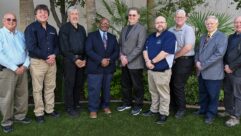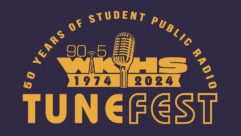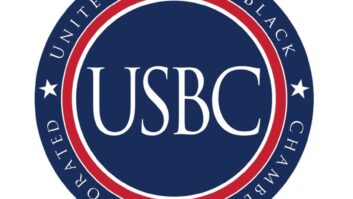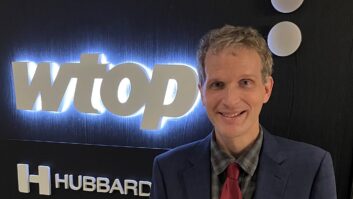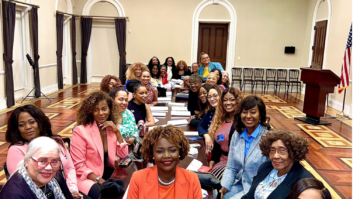
Sherman ‘Jocko’ Maxwell. Courtesy Berenice Maxwell Cross Most of today’s sports fans and broadcasters likely have never heard of him, but they should have. Perhaps, as one sportscaster puts it, this was sports broadcasting’s Jackie Robinson. Certainly he was there before Stuart Scott, Fred Hickman, Nick Charles, James Brown, Art Rust Jr., Robin Roberts, Greg and Bryant Gumbel, Bill White or Dave Sims.
Sherman “Jocko” Maxwell died in the summer of 2008 at age 100. Believed by many to be the first black sports broadcaster, he also was known as an unofficial historian of baseball’s Negro Leagues, from his days as a sportswriter and sportscaster in Newark, N.J.
His records are said to have been meticulous, his broadcasts captivating. Hall of Famer and former Negro Leaguer Monte Irvin called Maxwell “unique.” Irvin told the Star-Ledger newspaper that Maxwell’s broadcasts of Newark Eagles games were “just a great thing.” He also became public address announcer at Ruppert Stadium for the Eagles.
When Maxwell’s radio career began in 1929 there were no African-Americans broadcasting sports. He started out with a weekly five-minute show during which he reported results and stories on WNJ. The station, known at the time as “the voice of Newark,” was owned by Herman Lubinsky, later a co-founder of jazz and gospel label Savoy Records, according to the New York Times.
For nearly four decades, he worked in radio, including at WHOM in Jersey City and WRNY in Coytesville, while keeping his full-time job as a postal clerk. He was heard until 1967.
Amazingly, he once said he’d never asked for a dime from any radio station — “I like a thing, I do it” he told a reporter — and that the only money he received was from his sponsor, Ballantine Beer.
Maxwell wrote for various publications, including the Newark Afro-American and the Star-Ledger’s predecessor, the Newark Ledger. At that time, no local paper covered the Negro Leagues.
Star-Ledger columnist emeritus Jerry Izenberg has said that without Maxwell, there might be no record of the Negro Leagues. Izenberg told the paper that Maxwell somehow sensed that what he was doing might, someday, be important.
Maxwell also wrote for Baseball Digest and authored a 1940 book of sports interviews.
In a column composed on the night of Maxwell’s death, Izenberg wrote that there were 32 broadcasters in the National Baseball Hall of Fame in Cooperstown; Maxwell wasn’t part of that group and likely never would be.

Jocko Maxwell visits with Ernie Harwell in 2001 at the National Baseball Hall of Fame in Cooperstown. ©National Baseball Hall of Fame To Maxwell, perhaps it didn’t matter. “Jocko was on his own mission. He let the world know what was going on in places like Ruppert Stadium and Forbes Field and Comiskey Park when the ‘other’ teams (which meant blacks) took over from the regular tenants. And in his way, he made the part of America that would listen know all about these black knights of the open road.”
Maxwell was born in 1907 in Newark. The New York Times reported that he took his nickname as a teenager when he climbed a tree to catch a fly ball and someone yelled, “Hey, look at Jocko,” a reference to a monkey seen in films of the era. He graduated from Central High School in Newark and served in the Army in Europe during World War II.
Maxwell visited Cooperstown once, in 2001, to see the bronze likenesses of some of the men whose careers he’d covered, and, especially, the names of his fellow broadcasters. He’d known and dined with many of them back “in the day” as the first African-American member of the New York Sportscasters Club (think Mel Allen, Red Barber and others of that stature).
Maxwell is not in the broadcasters’ wing of the Hall of Fame, though his picture is in the building, somewhere, a photograph taken with Ernie Harwell on the day he visited Cooperstown. Harwell, who was making a presentation that day, recognized Maxwell and invited him to the front of the room. Later, Maxwell told Christine Baird, a Star-Ledger reporter who accompanied him that day, “Imagine that. He remembered me. I’ve never had a nicer day in my whole life.”
Peter King is a lifelong baseball fan and an Orlando-based staff correspondent for CBS News Radio. He can be reached at[email protected].



